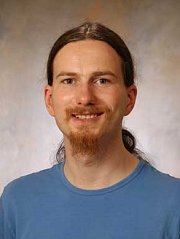Episode transcript here. Marko Malink is Assistant Professor of Philosophy at the University of Chicago. Click here to listen to our conversation with him.

An episode on modal syllogistic is guaranteed to sound a bit challenging to someone who hasn’t ever studied logic. But the topic isn’t just fascinating–it’s easy to grasp once you’ve learned some of the relevant terminology. If you’ve never taken an introductory course in logic before, I recommend taking a look at my entry from earlier this year at the Partially Examined Life blog, which introduces some of the basic concepts in philosophical logic.
Our discussion with Marko Malink turns on the meaning of words that philosophers and linguists call quantifiers. Quantifiers are the words we use to make generalizations, including every, some, all, no, most, few, and many.
At the beginning of the 20th century, philosopher and mathematician Gottlob Frege revolutionized logic by offering a new definition of the quantifiers all, every and some. We say things like ‘all French people love Jerry Lewis’ on a daily basis, but of course that doesn’t mean we’ve thought about how to define them precisely. Luckily, Frege did it for us. He would have thought that ‘all French people love Jerry Lewis’ meant ‘for everything, if that thing is a French person, then it loves Jerry Lewis.’
As Marko Malink points out, this defnition has a specific consequence: namely, it makes the truth or falsity of sentences like ‘all Xs are Y’ depend on nothing more than what falls into the category X and what falls into the category Y. (Philosophers call sentences whose truth or falsity depends only on what falls into what category extensional sentences.) In other words, if you want to figure out whether ‘all Xs are Y’ is true, you just go around checking to see whether every X happens to be Y. Take a list of all the Xs, and write a check mark next to each one if you find that it’s Y. If every item in your list ends up with a check mark next to it, then it’s true that all Xs are Y. Another way to put the idea is in terms of sets. If you say ‘all Xs are Y,’ then you’re saying that the set of Xs is a subset of the set of Ys.
This turned out to be an immensely useful way to understand statements like ‘all Xs are Y,’ and remains central to the way we think about them today. But according to Marko Malink, Aristotle was working under a different definition. Unfortunately, Aristotle never states the precise definition he’s using, so we don’t know exactly what statements like ‘all French people love Jerry Lewis’ would have meant, from his point of view. However, as Malink points out, we do know that he wouldn’t have thought of them as extensional–as depending for their truth and falsity only on what falls into what category.
How do we know that? Well, Aristotle draws a distinction between two kinds of properties: substance properties and accidental properties. (In ancient Greek philosophy, ‘substance’ didn’t necessarily mean physical matter, the way it usually does today. For the purposes of this discussion, think of it as a technical term meaning ‘real, existing thing.’) Bearing a substance property means being one kind of thing rather than another: for instance, being a giraffe, or a horse, or a person. Bearing an accidental property means having some random feature rather than another–a random feature that anything could have, in principle. Like being brown or green. What’s the difference between kinds of things and features of things? Something like this: if you tell me that something is this sort of substance rather than that sort of substance, you’ve really told me something informative about it. But if you tell me that something has some old random feature, you haven’t really given me any special insight into it.
Suppose I perceived the vague outline of an animal off in the distance, then asked: ‘What is that thing?’ If you replied, ‘It’s a giraffe,’ there’s the sense that you would be giving me significant information about the nature of the animal I was looking at. ’Ah yes; a giraffe,’ I would say. But if you replied, ‘It’s something brown,’ there’s the sense that you wouldn’t have really told me anything informative about what I was looking at. That’s part of why I would never respond by saying, ‘Ah yes; a brown thing.’
Malink argues that the difference between the Fregean definition of quantifiers like ‘all’ and the Aristotelian definition of quantifiers like ‘all’ is this. According to Frege’s definition, it doesn’t really matter what properties X and Y are when you say ‘all Xs are Y.’ As long as the Xs are a subset of the Ys, the sentence is true. But according to Aristotle’s definition, ‘all Xs are Y’ can’t be true when X is an accidental property and Y is a substance property. It can only be true when both X and Y are substance properties, or when X is a substance property and Y is an accidental property.

Here’s an example. All mandrills (more or less) have blue and red ridged noses. And it so happens that they’re the only animal with noses like that. So under Frege’s definition of ‘all,’ both of these sentences are true:
(1) All mandrills have blue and red ridged noses.
(2) All possessors of blue and red ridged noses are mandrills.
Why? Well, since the set of mandrills and the set of blue and red ridged nose possessors have the same members, they’re the same set, and thus they’re subsets of each other. Therefore, both (1) and (2) are true. But under Aristotle’s definition–whatever that definition may have been–only (1) can be true, because (2) tries to ascribe a substance property (being a mandrill) to everything that has an accidental property (having a blue and red ridged nose). In Aristotle’s view, you only get to make general claims about anything that has a substance property.
Marko Malink goes on to claim that this fact about Aristotle’s basic logical framework is crucial for understanding how his more sophisticated logical framework–which we call modal syllogistic–works. In our next post, we’ll discuss why.
Matt Teichman